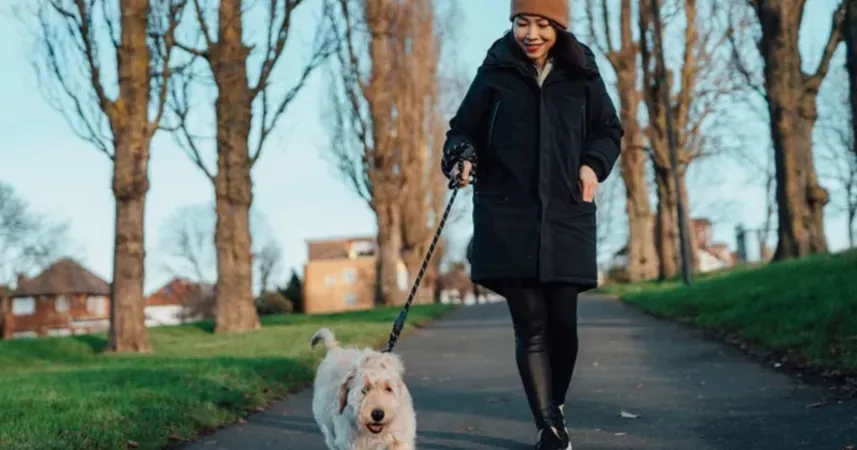
Spotting Dementia: A Neurologist’s Guide to Quick Home Tests
2024-12-09
Author: Jessica Wong
Spotting Dementia: A Neurologist’s Guide to Quick Home Tests
Dementia is a complex condition that goes beyond simple memory loss. It can affect various aspects of cognitive and physical functioning, including spatial awareness, gait speed, smell perception, and even the ability to perform everyday tasks like climbing stairs. Understanding these signs can lead to early detection and improved management of the disease.
Dr. Bing, a neurologist, recently took to TikTok to share five simple tests that anyone can conduct at home to help gauge whether someone might be experiencing early signs of dementia. These tests revolve around basic physical tasks and cognitive responses.
Test 1: One-Leg Stand
One of the initial assessments involves seeing if the person can stand on one leg for at least 30 seconds. Research indicates that balance is governed by brain regions linked to motor skills, and struggling with this task may indicate subtle deficits.
Test 2: Smell Sensitivity
Changes in olfactory perception are also noteworthy. Early dementia can alter how individuals perceive smells, and this can be particularly apparent during common routines, like showering. This shift could manifest in altered reactions to familiar scents.
Test 3: Clock-Drawing Test
Another revealing test is the clock-drawing exercise. The challenge requires a person to draw a clock indicating a specific time. This task can highlight issues related to spatial awareness, attention, and cognitive planning, which are crucial for everyday functioning.
Test 4: Category Fluency
Dr. Bing also recommends a "category fluency test," where individuals are prompted to name as many items as they can think of within a specific category—say, animals or fruits. Difficulty with this can point to declines in verbal fluency, which has been linked to dementia risks.
Test 5: Dual Task Gait Test
Finally, the "dual task gait test" requires a person to walk while simultaneously performing a cognitive task, such as counting backward. Complications in multitasking may indicate challenges with executive function, memory, or attention, which are often affected in dementia.
What Should You Do If You Suspect Dementia?
It's essential to understand that these tests are not definitive diagnoses. They serve as preliminary indicators of cognitive decline. The earlier dementia is identified, the better the potential outcomes for management and support. If you're concerned about someone possibly showing signs of dementia, it's crucial to consult a healthcare professional. The NHS recommends accompanying your friend or family member to a doctor to provide support and help them remember key points discussed during the visit.
Early detection can lead to effective interventions that enhance quality of life and provide valuable time for families to prepare. Stay vigilant for these signs and take proactive measures if needed.





 Brasil (PT)
Brasil (PT)
 Canada (EN)
Canada (EN)
 Chile (ES)
Chile (ES)
 España (ES)
España (ES)
 France (FR)
France (FR)
 Hong Kong (EN)
Hong Kong (EN)
 Italia (IT)
Italia (IT)
 日本 (JA)
日本 (JA)
 Magyarország (HU)
Magyarország (HU)
 Norge (NO)
Norge (NO)
 Polska (PL)
Polska (PL)
 Schweiz (DE)
Schweiz (DE)
 Singapore (EN)
Singapore (EN)
 Sverige (SV)
Sverige (SV)
 Suomi (FI)
Suomi (FI)
 Türkiye (TR)
Türkiye (TR)